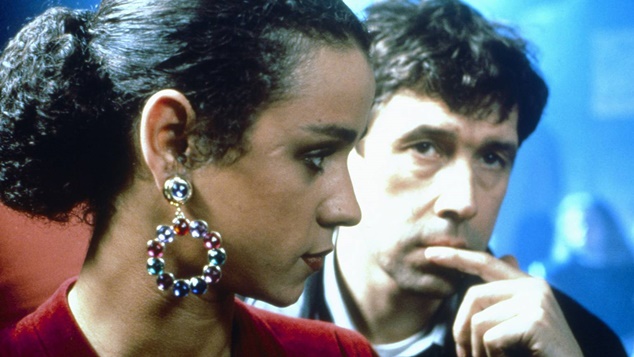Neil Jordan’s film The Crying Game had its premiere at The Venice Film Festival on this day in 1992.
If you keep reading, there will be spoilers – but hey, the films been out for over 30 years.
The film follows Fergus, a member of an IRA cell who kidnap a British solider. They threaten to execute him if their demand that political prisoners are released is not met. While in the group’s custody the solider named Jody pleads with Fergus to get in touch with his girlfriend Dil if he does not survive.

After Jody and the other members of the IRA cell are killed, Fergus assumes a new identity changing his name to Jimmy. He tracks down Dil and followers her to a Karaoke Bar, the pair start chatting and after many encounters he begins to fall in love with her. She is unaware of his involvement in Jody’s death.
Their relationship builds but when they head to her apartment and are about to be intimate for the first time, but when Dil undresses it is revealed that she is transgender. At first Fergus reacts with violence, but they later continue on with their relationship.
Things become more complicated when it’s revealed that not all members of the IRA cell were killed after all, and Fergus is dragged back into their operations.
The film stars Stehen Rea as Fergus, while Jaye Davidson who had little acting experience prior to the film played Dil. Forrest Whittaker plated Jody, while Miranda Richardson and Andrian Dunbar are among the IRA cell members.
At the time the film was a rare depiction of a transgender woman, and the naked scene where Dil’s birth gender is revealed was considered confronting at the time. It was critically acclaimed. Esteemed film critic Roger Ebert praised the film saying it “involves us deeply in the story, and then it reveals that the story is really about something else altogether.”
Since its release the film has been both praised and criticised. It’s been noted that the violence reaction Fergus has to discovering Dil’s gender identity is problematic, and the film enforces, rather than challenges stereotypes.
The film was not successful in the United Kingdom, something director Neil Jordan has attributed to its sympathetic portrayal of a member of the Irish Republican Army, a recognised terrorist group. The film did find success in other parts of the world where there was a marketing campaign pleading with viewers not to reveal the gender twist within the story.
The film also has a very memorable soundtrack which was produced by Anne Dudley from the Art of Noise and Pet Shop Boys.
It featured the uplifting song Live for Today performed by Cicero and Sylvia Mason-James, but its big hit was the title tune performed by Boy George and produced by Pet Shop Boys.
The film was nominated for six Academy Awards, including a Best Supporting Actor nomination for Jaye Davidson. It went home with the award for Best Original Screenplay. It won the BAFTA for Best British film of that year.
Following their success in The Crying Game Jaye Davison only made one more film. He played the villain Ra in the 1994 sci-fi film Stargate. He was reluctant to make any more films, so he boldly asked for a million dollars for a brief appearance in the film.
Davidson has subsequently shared he was genuinely surprised when producers agreed to his pay demand. After collecting his massive paycheck he retired from acting.





